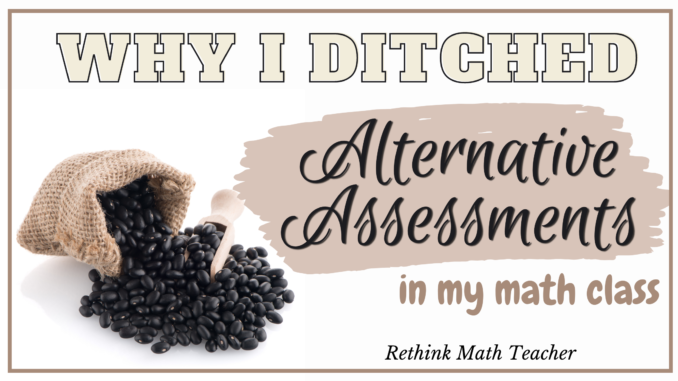
Some students aren’t good test takers. They get test anxiety, they work slower than their peers, or a host of other issues that cause issues with tests as a viable form of assessment. So providing students with an alternative method to demonstrate comprehension sounded like such a great idea. Sadly, it wasn’t!
My First Failure
I was teaching proportions and I found an alternative assessment activity that involved a real world simulation of how scientists determine the population size of a species in the wilderness.
I was super excited! A hands-on activity. An alternative method of assessment. Differentiated instruction! STEM! It was checking all of the boxes.
Here’s a brief synopsis of the activity. Students are given a paper bag full of beans. They don’t know how many beans are in the bag, but by using proportions, they can determine the population size (number of beans in the bag). So students mark a handful of beans, and record that number. Then they return those marked beans to the bag, give the bag a good shake, and then grab a new handful. After recording the ratio of marked beans to total beans pulled out this time, they repeat the process ten times. Then they add all of the ratios up, find the average ratio, which will in turn tell them how many beans are in the bag. How cool! …Until it wasn’t.
The Issues Started Immediately
The first issue I ran into were the common ones that I was prepared for: students not reading the directions properly, not understanding the steps, and misbehaving instead of doing the assignment. All of which I quickly squashed and we progressed.
I was not prepared for all of the bags breaking, but I quickly helped students tape them up, and we pressed through.
I even adapted on the fly when the Sharpe marker started rubbing off of the beans and onto my students’ hands. We pressed on.
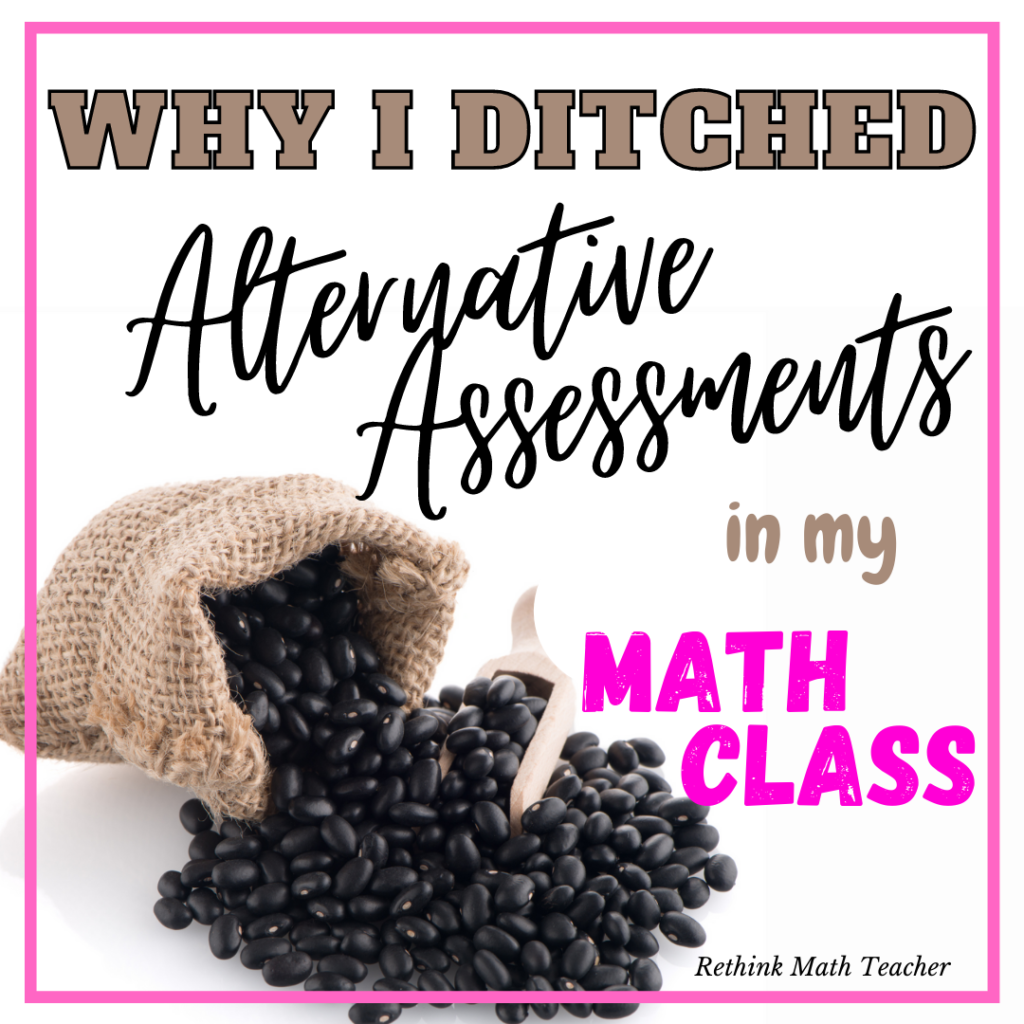
The Ultimate Dilemma
However, I was not able to adapt to the biggest problem of the whole escapade.
I still had students who did not understand how to find a ratio or how to work with one. So after they collected all of that data, they could not complete the task. Meaning they spent the whole hour just pulling beans out of a bag and were academically no better for it than when they started the hour.
One student summed it up nicely, “A whole hour of throwing beans at each other!”
Why it Failed
The project didn’t work because it required students to have already mastered proportions and ratios. And since many had not already mastered it, this fun, hands on STEM activity, was not helping them. It was just a waste of time (and a messy one at that!)
I thought to myself, it would have been far better for them to have spent the hour doing practice problems, then to have done this activity. Afterall, we learn through practice with immediate feedback. And since many of my students still hadn’t mastered the concept, they still needed to go through the learning process, not the assessment – and definitely not the alternative assessment.
It would have been better for me to have given this activity as an extension activity for those who had already mastered the skill of ratios and proportions, while I remediated those who had not. Then, after they had mastered it, they too could have the opportunity to participate in this engaging activity.
My Beef with Alternative Assessments in Math
Alternative assessments are supposed to be fun activities, or alternative ways to demonstrate mastery. I’m not against either of these. But I have a few issues with alternative assessments for our math classes.

First, your math students need to get good at taking tests. They will have traditional assessments for the rest of their academic careers, and likely their lives. They will take College entrance exams, SAT’s, tests for other teachers and colleges, and possibly diagnostics in their future jobs (I’ve had multiple jobs outside of education that gave me a basic algebra test prior to being hired).
Besides the above, if you’re in a public school, your students and you will be measured by their performance on the end of year assessment or diagnostic. And guess what form that will be in? (If you guessed a traditional assessment, you got it!)
So instead of avoiding assessments, how about exposing your students to them and helping them become proficient at them.
As an aside, if my students don’t pass their assessment on the math skill we are working on, I remediate them (not the whole class, just those who didn’t pass) and then they retake the assessment (different questions, same skill, of course!) When they do pass the assessment, I take the bad test grades in the gradebook, and replace them with that passing one. By doing so, I help my students not only master the skill, but get better at taking tests. For more information on Skills Based Learning Stations, that allow me to do this, click here.
The Time Suck
My second issue with alternative assessments is the tremendous drainage of time that they account for. Revisit my example above and think about how much time we all lost. First, we lost an entire class period. And all it produced was me learning which students had and had not mastered proportions. And! This data was also faulty, since the project was group work. Thus, many students were able to do well on the alternative assessment simply because they were partnered with someone who knew what they were doing, not because they understood proportions and percents.
But that’s not the only time that I lost. I had to go to the store and buy the supplies, which not only cost time but also money and I had to setup for the activity. I also had quite a bit of clean up with all those beans all over the room.
The Student Becomes the Teacher
Have you ever had your students do research on a topic and then have them build a presentation to present to the class?
One year I got the great idea to have each student build a Prezi, teaching the class how to do one of the math concepts that we were reviewing for our diagnostic. And since the best way to comprehend a concept is to teach it to someone else, this sounded like a great idea! …Until it wasn’t!
First, I had to teach students how to do a Prezi, which they actually grasped fairly quickly. Then, I had to go over and over the rules on plagiarism. I was constantly checking everyone’s Prezi’s, explaining to them that they could not copy and paste someone else’s steps, or presentation, and remind them that they had to make their own.
Third, when it was all done, I felt like we had really misused our time. My students spent the better part of a week researching and building their Prezi’s. For the most part, they all came out very poorly. The students who didn’t know how to do the skill did not learn the skill or adequately research it. Instead, they continued to try to find someone else’s work to show to the class.
Many of the Prezi’s were incomplete. And since part of the grade was actually presenting it, we saw a lot of half-done presentations. We spent two days watching each other’s presentations, which did not result in us learning much at all. And many of the students still didn’t know how to complete the task that they were supposed to be teaching everyone else how to do.
At the end of it I thought to myself, we just lost a whole week, and the majority of the students learned less than nothing! It would have been better to have them do practice problems with immediate feedback. The chances of them having mastered the concept would be much higher than they were with this activity.
Conclusion
One. We need to be preparing our students for the types of assessments they will be seeing later this year and in life. Specifically, the state diagnostic, the SAT or ACT, and college entrance exams. Don’t avoid traditional assessments.
Two. Alternative assessments in math are better suited as extension activities after students have mastered a concept. Many times, I have given my ‘high flyers’ the job of researching the next topic the class was to learn, building a lesson plan, and teaching it. And it has gone very well. But giving this assignment to the whole class has not.
Three. There are several very solid teaching strategies that help students master a concept. Things like quality tutorials, lots of practice repetitions, and immediate feedback. Instead of trying to do something alternative, and losing a lot of time, stick to the basics. These simple, yet highly effective strategies will produce much better results than trying to do some crazy, cute activity if your students aren’t ready for it.
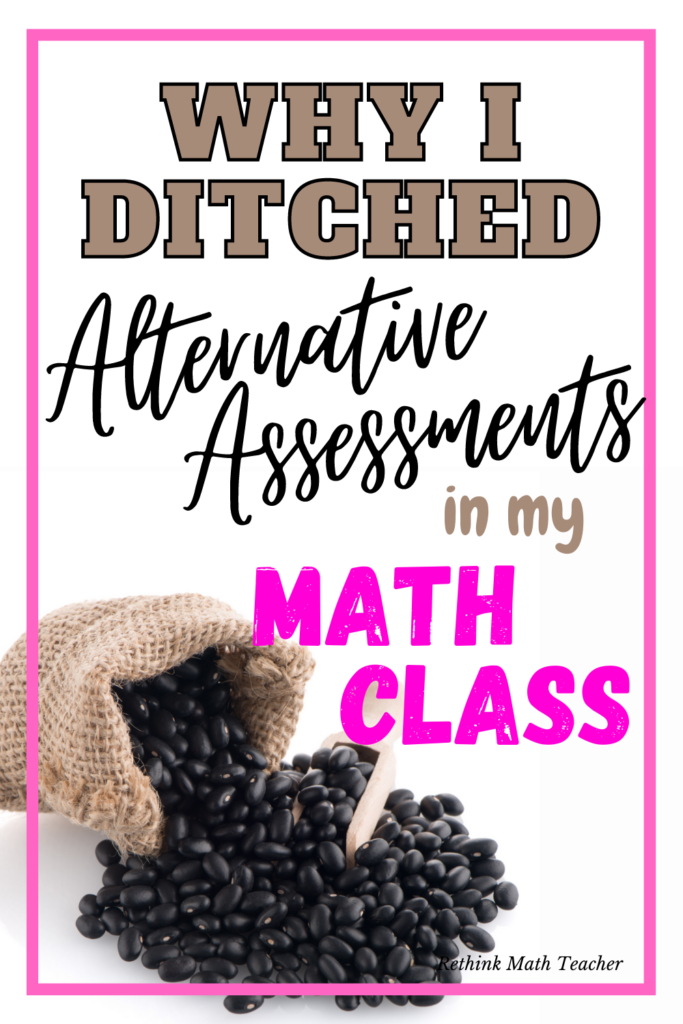
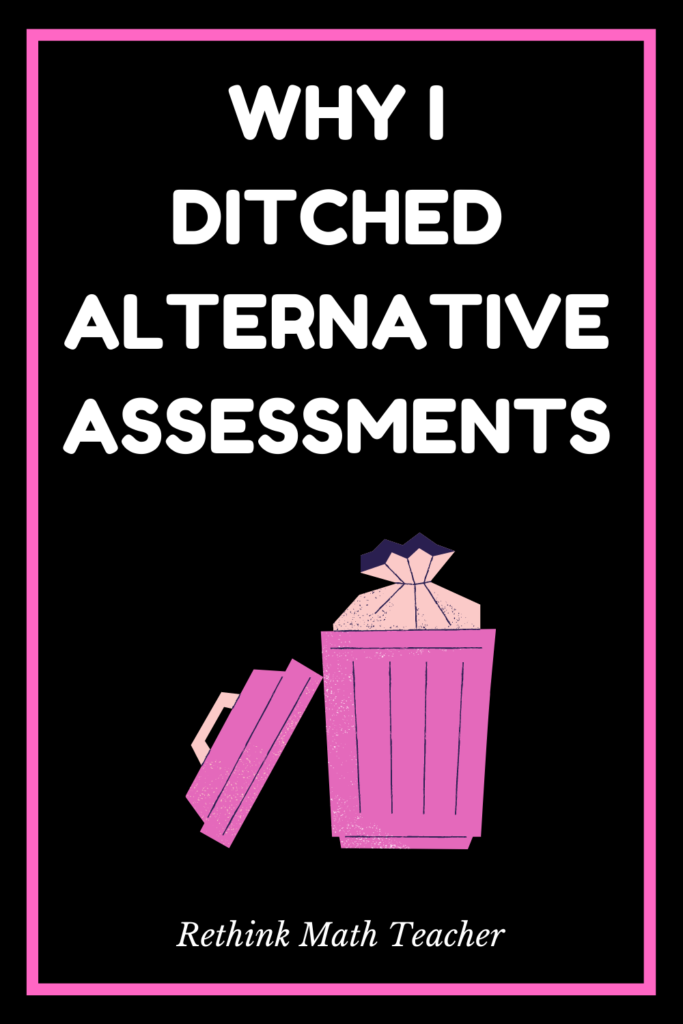


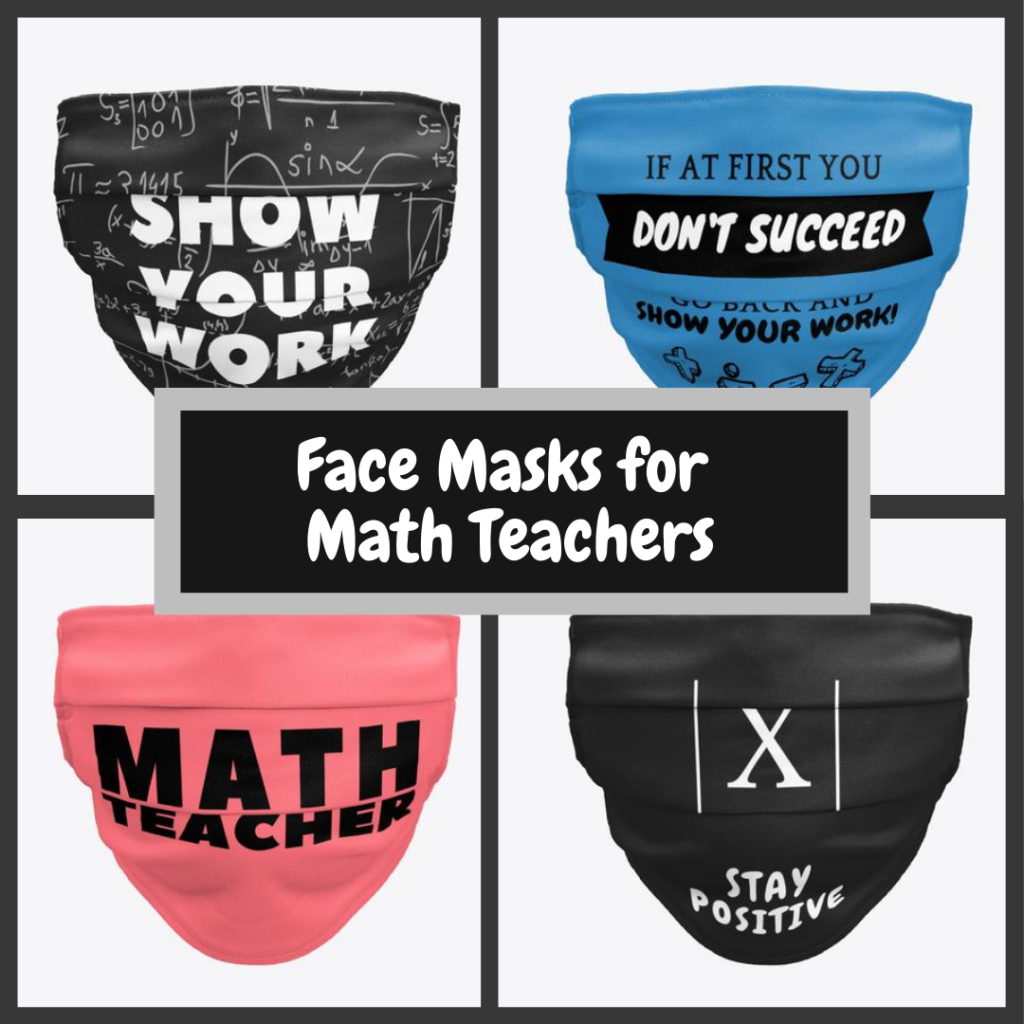
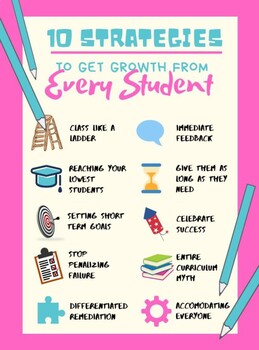

Thanks for this interesting post! Aren’t your examples perfect to assess a bunch of wider skills that are needed in real-life (also goals of the curriculum)? Things like: not reading the instructions, lack of understanding… My colleague is an assessment researcher (my research is about engaging students), and as I do posts and talks about issues like this in maths, was thinking whether you would be interested in talking more about your experiences? Preparing students for the assessments is certainly an important job, but what to do as a teacher if you also want to address other aspects? Your experiences would be valuable for further spreading 🙂